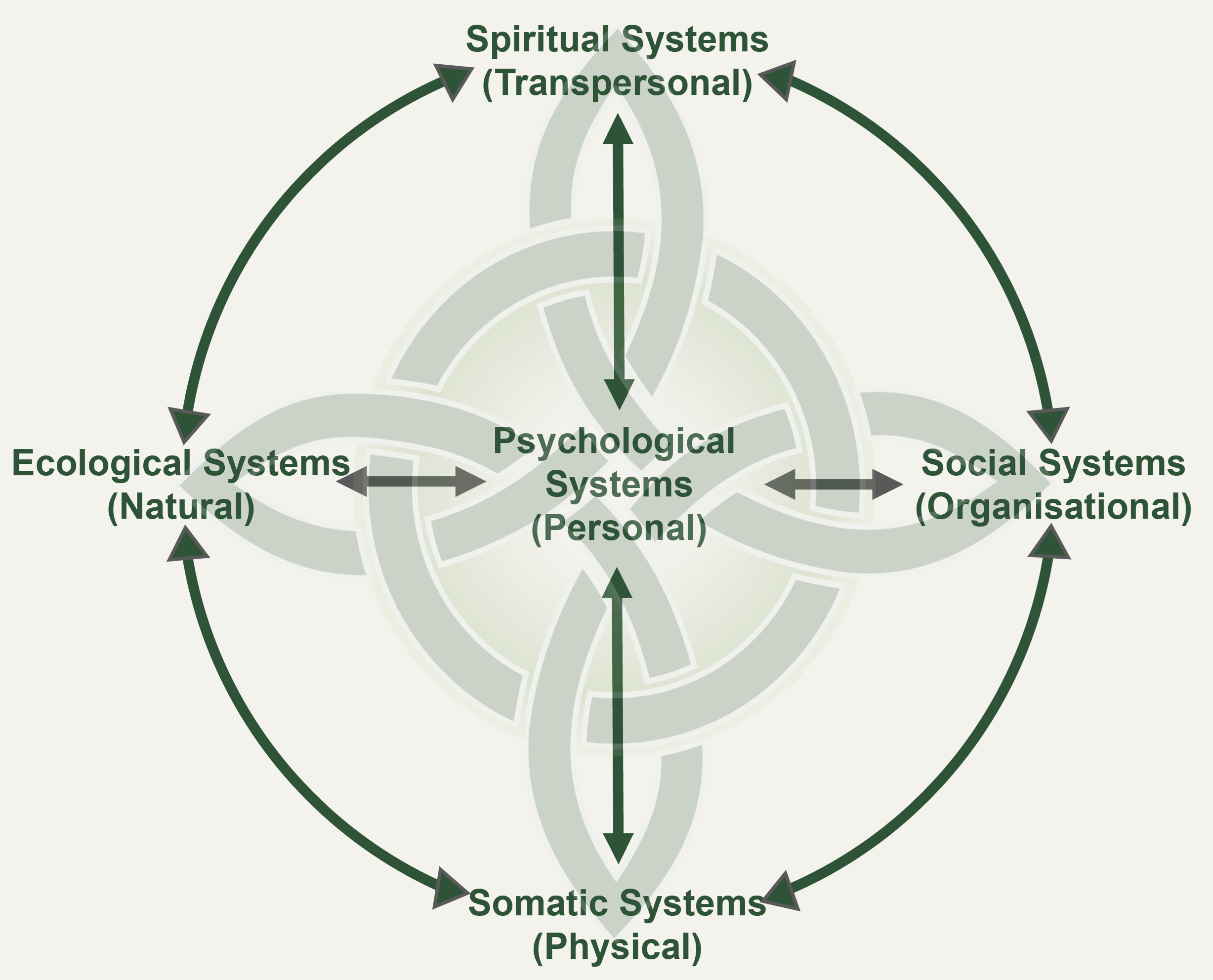Our Approach
Evidence-Based
We ensure that a strong foundation of research evidence supports all our work. From this foundation, we create new knowledge that is researched and shared through our leadership publications. If you would like to participate in our research, please take a look at our Research page and get in touch.
The Integrated Systems Coaching Framework
The natural systems approach to coaching and leadership development emphasises a holistic approach that integrates the natural world and systems thinking to foster individual and organisational growth. It acknowledges the interconnectedness of all things, including individuals, organisations, and the environment, and aims to create sustainable change by addressing problems and realising opportunities within the broader context of multiple systems.
The Integrated Systems Coaching Framework
Canessa-Pollard, V., & Sexton, T. (2025). Coaching with the Earth in Mind: A Fourth-Generation Integrative Framework for Regenerative Leadership. Journal of Management Learning. (In Review).
The Need
Organisations are increasingly experiencing the ‘Complexity Gap’. As society seeks to address the major eco-social crises we are facing today, organisations and their leaders are now expected to balance the needs of multiple stakeholders, profit from providing solutions for people and the planet, and report performance against an ESG framework. All of this needs to be delivered within an increasingly volatile, uncertain, complex and ambiguous operating environment. Most leaders have not developed the capability to work with this level of complexity.
The Solution
When we are getting overwhelmed by complexity, our ego defences rise up to protect us. These defences separate us from the systems we are embedded and take a lot of psychological energy to maintain. This further constricts our ability to work with complexity. Natural systems coaching and development reconnects us to these systems and this quietens our ego defences, allowing more psychological energy to be available for complex thinking. From this more resourced position, we are better able to address complex problems and realise opportunities.
Key Principles
Systems Thinking
The natural systems approach recognises that individuals and organisations are embedded within larger systems, and that actions have interconnected consequences.
Nature Connection
Central to the natural systems approach is the understanding that nature is not a backdrop but a co-participant in human development and leadership transformation. It emphasises the importance of connecting with and learning from the natural world to gain insights and cultivate resilience.
Embodied Connection
The natural systems approach values the physical body as a source of valid information. Therefore, it focuses on enabling individuals to increase their awareness of their body and the information it provides.
Social Connection
The natural systems approach supports leaders to connect a diverse group of people in an organisation in a way that enables them to draw on the collective intelligence, which is needed to solve complex problems.
Spiritual Connection
Spirituality consists of values and beliefs concerning the nature of reality and the meaning of life, transcendent and mystical experiences, and connection with others, nature and/or a spiritual entity. Through spiritual connection, the natural systems approach enables people to find greater meaning in their work through greater connection to others, nature and their spiritual self.
Psychological Growth
The natural systems approach challenges the dominance of a ‘loud ego’ and instead enables leaders to realise the benefits of having a ‘quiet ego’. As the ego quietens, psychological energy flows more freely to activate multiple intelligences—cognitive, emotional, embodied, social, and spiritual—equipping leaders with a richer palette of leadership responses to complexity. With a quieter ego, leaders can enter into a flow state of consciousness where they work with a high level of efficacy, performance and perfection.
Sustainability
It aims to create sustainable solutions that benefit individuals, organisations, society and the environment.
Benefits of the Natural Systems Approach
Enhanced Sense of Meaning and Purpose
A deeper understanding of self, values and place in the world.
Improved Problem-Solving
Increased ability to participate in solving complex problems with greater creativity and innovation by providing new perspectives and ways of thinking.
Increased Resilience and Wellbeing
Deep resilience and ability to cope with stress and change.
Stronger Relationships
Understanding the interconnectedness of systems fosters empathy and collaboration with teams and organisations. This builds greater connection, inclusivity, acceptance of diversity and coherence within the organisation.
Environmental Stewardship
Greater environmental consciousness and propensity to take action to protect the planet.
Contact Us
Get in touch if you want to increase your ability to tackle complex problems or develop the future leaders within your organisation.

